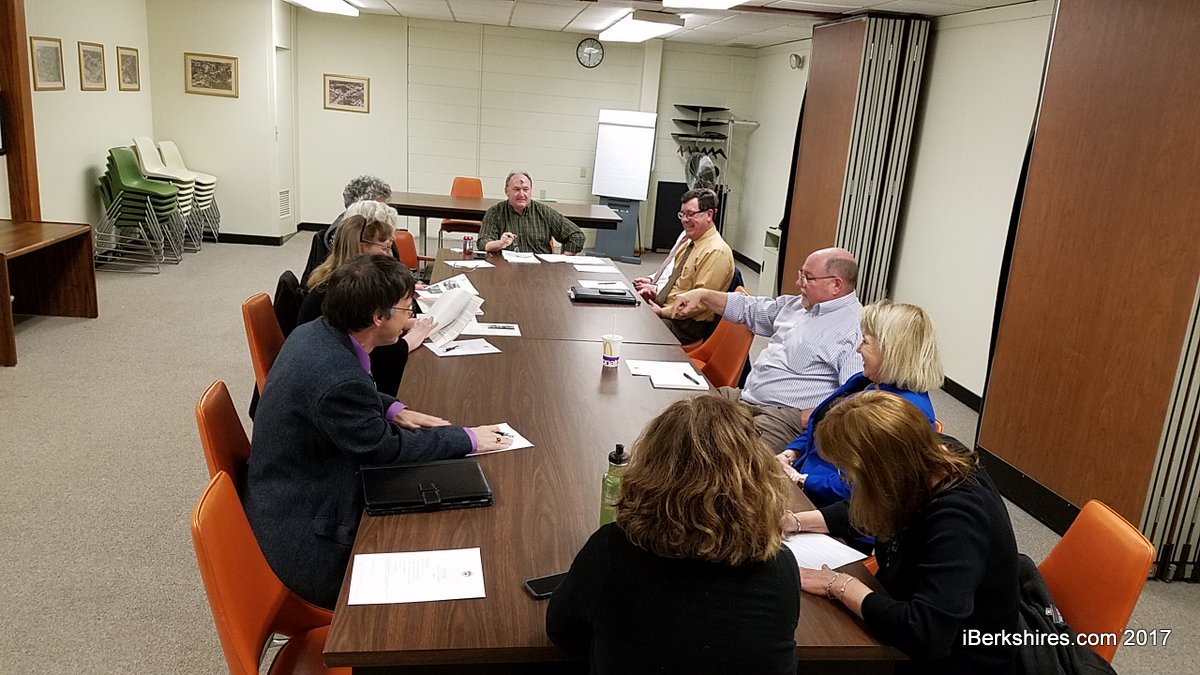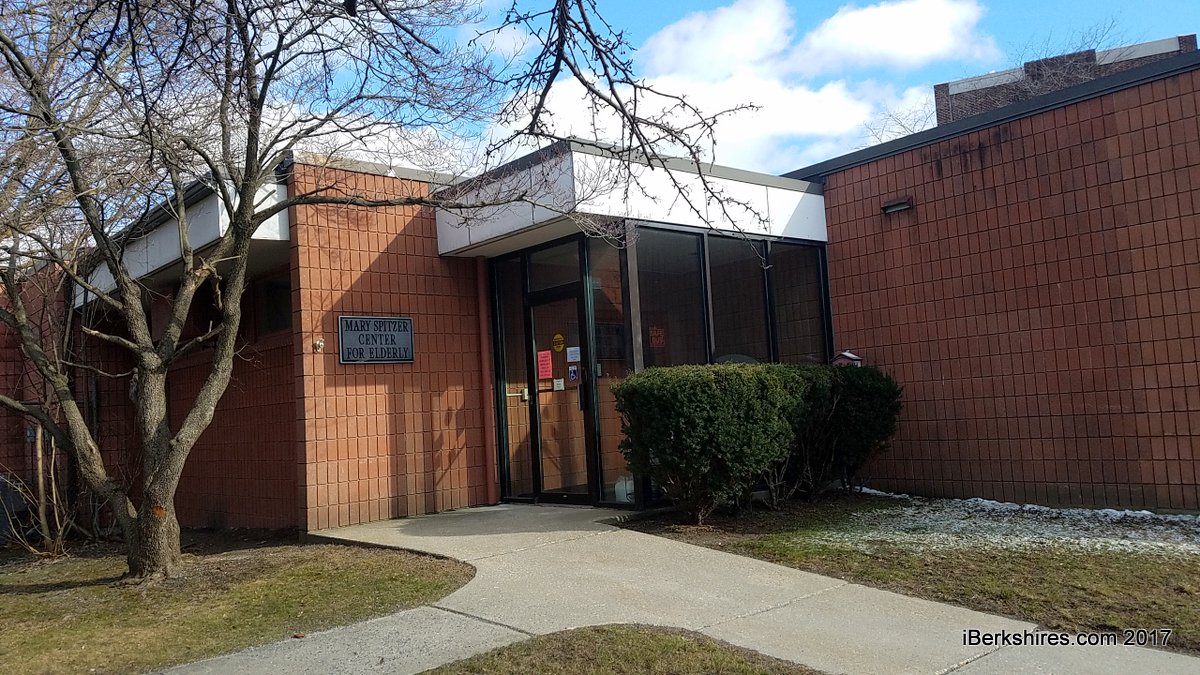




North Adams Seeking CDBG Funds to Fix Failing Armory Facade

NORTH ADAMS, Mass. — The city is applying for some $250,000 in federal funds to repair facade work on the Armory that was completed nearly a decade ago.
The funds are part of the city's $825,000 application for Community Development Block Grants in 2017.
"I want folks to know and understand just how disappointed the city is to have to be basically rebuilding the masonry work that was done eight years ago," Mayor Richard Alcombright said at the CDBG public hearing on Wednesday night.
The parapets of the Armory are covered with tarps — jersey barriers are set up on the northeast corner in case of collapse — and the stonework on the stairways is pulling apart.
Alcombright said the failing masonry was identified and evaluated about two years ago but the company that did the work responded that the guarantee had expired. Craig Spice, project manager for Armory project, concurred that there was only a one-year warranty under the Division of Capital Asset Management and Maintenance guidelines.
"I've gone after them ... personal visits to them, constant phone calls, letters, we've been all over ... the attorney general most recently to see if anything could be done," Alcombright said. "There really, unfortunately, isn't. We appealed to their sense of business, just the fact that their work failed and it failed in a way that's going to cost this program a couple hundred thousand dollars to remediate that."
The original contract was about $180,000 and the city asked if the firm, Contracting Specialists Inc., would split or reimburse some of the cost if it would not fix the problem. Alcombright said CSI offered minimal aid.
According to the project sheet on CSI's website, the company was selected to repair and restore the granite stone parapets and steps. A new concrete walk was also poured, center railings installed and the limestone caps patched.
Michael Nuvallie of the Community Development Office said, "the aggregate was a little suspect, it performed in some areas and not in other areas." Nuvallie said CSI pointed to the fact that it didn't fail 100 percent and also claimed that tractor trailer traffic vibrations could have damaged the facade.
The city is dismissing those claims, saying the mortar shouldn't be failing at all and that tractor trailers rarely go down Ashland Street — and if they did, why wasn't the whole front falling apart?
The mayor thought it "highly unusual" for a company such as CSI to avoid responsibility just from a business sense. CSI has an office in Attleboro as well as in Portland, Maine, Washington, D.C., and Fort Lauderdale, Fla. Its portfolio is an impressive list of new and historic projects for private and governmental entities.
An email asking CSI to comment on this article was not returned on Thursday. We will add in any comments if the company responds.
This repair will be Phase 12 of the long-running renovation of the Armory, purchased by the city in 2007. The goal has been to renovate the former National Guard headquarters into a community center. Alcombright said he frustrated that the city has been unable to find suitable nonprofits to partner in operating the center.
It sees significant use by the youth basketball league and a tai chi class is being held there. But the new bathrooms, offices and brand-new commercial kitchen aren't getting much use. Over the past decade, every window has been replaced, a new vestibule and elevator installed, the roof redone and new ramp installed. This year will see the final part [Phase 11] of the two-phase parking lot rehabilitation, with paving and grading of the Ashland Street lot.
The Armory restoration has been done through CDBG funds. The 2017 request, to redo the facade, is $254,250.
Also on the grant application is $342,000 for the Mary Spitzer Senior Center, built in the 1970s. CDBG funds in fiscal 2014 were used to hire a design firm to evaluate the building and create a capital improvement plan and bid ready documents.
Nuvallie said the building needs substantial roof work, electrical upgrades and heating, ventilation and air conditioning that are being applied for in this funding cycle. Further interior work will be scheduled for future funding cycles.
The Berkshire Family YMCA is slated for $75,000 for roof replacement. The city purchased the struggling YMCA in the early 1990s when Brayton School was being rebuilt; the school and YMCA share the gym and the organization leases the building from the city.
The city cannot fund 100 percent of the roof so the YMCA is responsible for design and construction costs. In applying for the funds, a new target area was created, Braytonville, to allow CBDG funds to be expended. The city's current economic target area is about a mile radius around the downtown center.

Alcombright said this new target area was kept small but will allow for the city to spend future grant funds for projects such as the replacement of the Brayton playground.
The city is also asking for $10,000 toward a matching grant from the Massachusetts Historical Commission to continue the local historical inventory and survey. "We've been chipping away at this most important document," said Nuvallie. Should the state grant fall through, the CBGD funds will help keep the effort going.
Some $20,000 is also being set aside for social services. Nuvallie anticipates funding five organizations at $4,000 each; the Human Resources Commission will select the recipients based on program applications.
General administration for the programs, including salaries, comes to $123,750 for a total of $825,000. The city should know by August if received the 18-month grant.
The city along with eight other communities are in what is called a mini-entitlement program through the state Department of Housing and Community Development. While other communities compete with each other for the federal block grants, the mini-entitlement communities technically compete against themselves.
Applications are based on goals and strategies in the city's master plan — Vision 2030 — and its space and recreation plans, and developed through discussions with the Community Economic Development Advisory Board.
"A lot of communities don't have a master plan. We do have a master plan and we've already secured a lot of monies in the community in the last couple years that were specifically tied to objectives that were in the master plan, that if it wasn't for the master plan we may not have received those resources," Nuvallie said.
"It was well worth the 3 1/2 year process to get there and well worth the money because it's already paid for itself several times over."
Tags: Armory, CDBG, Council on Aging, spitzer center,















